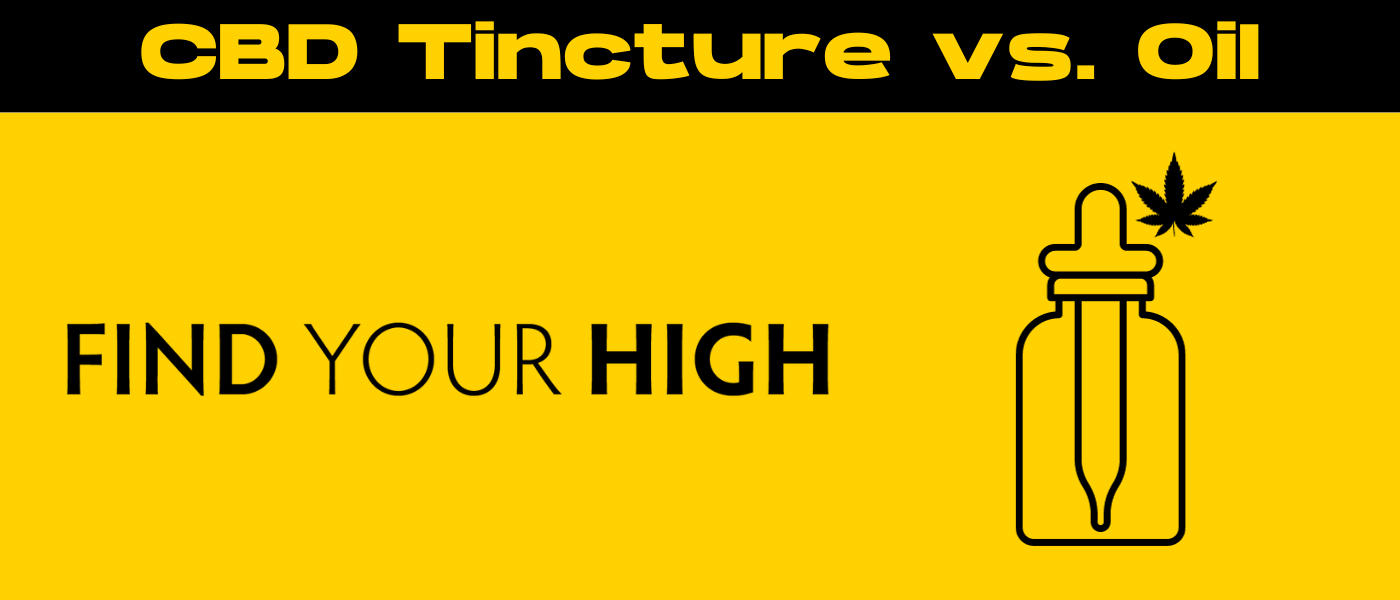In the bustling arena of wellness trends, the debate on ‘CBD tincture vs oil’ is the latest hot topic du jour, making green waves across the globe.
With CBD, otherwise known as cannabidiol, flexing its versatility in the form of oils, edibles, creams, and yes, even tinctures, it’s no wonder that this non-psychoactive sibling of THC is stealing the limelight.
As we dive into the world of CBD consumption, our focus lands primarily on the underdog contestants: CBD tinctures and oils. Strap in, as we explore the ins and outs of these wellness companions, unmask their unique characteristics, and hopefully help you make an informed choice in the CBD tincture vs oil showdown.
Ready to get started? Let’s begin!
Understanding CBD Tinctures
CBD tinctures come onto the scene with a touch of mystery, thanks to their somewhat old-fashioned name. But don’t worry, they haven’t been plucked from an 18th-century apothecary.
Instead, a CBD tincture is simply a CBD extract that has been diluted in alcohol. The production process involves steeping high-CBD hemp flowers in high-proof grain alcohol, followed by a dash of heat to hasten the extraction. The result? A potent liquid that delivers CBD compounds to the body.
Alcohol-based CBD tinctures are a cocktail of simplicity, combining the power of CBD with a carrier like alcohol and several additional ingredients like essential oils or herbs to enhance the flavor. Kind of like a posh cocktail, but with wellness benefits instead of a hangover.
Considerations for Choosing a Tincture
When choosing a CBD tincture, there are a few factors to consider. First, the concentration of CBD is crucial as it determines the potency of the product.
Another aspect to look into is the additional ingredients; some tinctures may include herbs or essential oils for added health benefits or improved taste.
It’s also important to consider the type of alcohol used as a carrier, as this can influence the tincture’s overall effect.
Lastly, ensure the product is third-party tested to verify its quality and purity. Luckily, all tinctures found on Hyperwolf are already tested for your safety.
Absorption Rates and Onset of Effects
Choosing a CBD Tincture is like selecting your morning coffee — it all boils down to how quickly you want it to work.
Tinctures, with their direct under-the-tongue application, have an express ticket to your bloodstream, providing a faster onset of effects. So, if you’re after swift results, a CBD tincture could be your speedy wellness friend.
Just remember, faster isn’t always better. It’s about finding the perfect rhythm for your wellness routine.
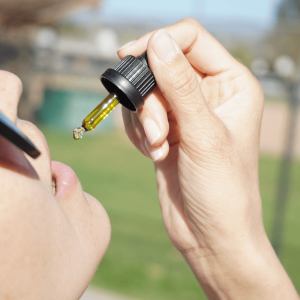
Examining CBD Oils
If tinctures are the suave secret agents in the CBD world, then CBD oil is the upfront superhero.
CBD oil is made by infusing a carrier oil, like coconut or hemp seed oil, with CBD. This process involves a high-pressure, low-temperature CO2 extraction process that ensures the integrity and purity of the CBD.
The choice of carrier oil isn’t just a random selection from the pantry; it can impact the taste and absorption rate. When choosing your CBD oil, be sure to consider the concentration and purity of the CBD as well as the carrier oil.
Also, not all CBD oil is created equal. Factors like extraction method, source of hemp, and third-party testing play pivotal roles in determining CBD oil quality.
As for their speed in delivering wellness? Well, they may not be as fast as their tincture counterparts, but they still pack a punch when it comes to bioavailability, offering a slower, more sustained release of CBD.
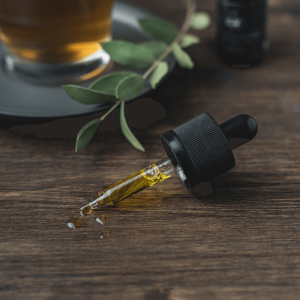
CBD Tincture vs. Oil: Key Differences
While both CBD tinctures and CBD oils are excellent ways to get your daily dose of CBD, there are several key differences that might influence your choice.
Differences in Composition: Tinctures vs. Oils
CBD oil is produced by combining CBD extract with a carrier oil, such as coconut oil, MCT oil, or hemp seed oil. On the other hand, a CBD tincture is made by soaking CBD-rich hemp flowers in alcohol.
The tincture production process may incorporate additional ingredients like herbs and essential oils for enhanced flavor and benefits.
Taste and Flavor
Before we dive into this point, it’s important to remember that taste preferences are subjective, and what appeals to one person might not to another.
CBD oils often carry a natural, earthy flavor, reflective of their hemp origin. This taste can be influenced by the type of carrier oil used.
CBD tinctures, on the other hand, have a more enjoyable and diverse flavor profile thanks to the addition of various ingredients like essential oils and flavorings.
Ease of Use and Dosage Precision
Both CBD oils and tinctures come with droppers, which allow for easy and precise dosing. However, as tinctures are typically more concentrated, careful consideration is needed to ensure the correct dosage. Oils may be a little more forgiving when it comes to precision dosing.
Shelf Life and Storage Requirements
Generally, CBD oils have a shorter shelf life than their tincture counterparts, primarily due to the perishable nature of the oils used as carriers.
Consequently, CBD oils often require refrigeration after opening, whereas CBD tinctures, thanks to their alcohol base, tend to have a longer shelf life and don’t require refrigeration.
Always check the product packaging for specific storage instructions.
Efficacy and Absorption
Now, let’s shift our focus to the crux of the matter — efficacy and absorption. The higher the absorption rate, the quicker the CBD gets into your system and starts to latch onto your endocannabinoid receptors.
Tinctures, with their alcohol base, work faster, hit harder, and make their presence felt. Oils, on the other hand, work slower but provide a sustained release. Various factors like the concentration of CBD, the carrier used, and your body’s metabolism can tweak these individual performances.
And just like anything else, every CBD user has a unique preference shaped by their personal experience. Some might prefer the fast and potent hit of tinctures, while others would rather choose the slow and steady rhythm of oils.
Choosing the Right Option
Choosing between CBD oil vs tinctures ultimately boils down to your individual needs, preferences, and lifestyle. It’s important to consider the targeted effects and desired outcomes you want to achieve from CBD.
If you’re looking for quick relief, a tincture might be more suitable due to its faster absorption rate. On the other hand, if you’re after long-lasting effects, CBD oil can be the perfect choice.
Dosage control and flexibility also come into play. Tinctures, being more concentrated, require careful dosing, whereas CBD oils offer a bit more room for error.
Lastly, lifestyle factors like taste, personal preference, ease of use, and storage requirements can also influence your decision. It’s all about finding the CBD product that seamlessly fits into your wellness routine, meeting your needs in the most effective way possible.
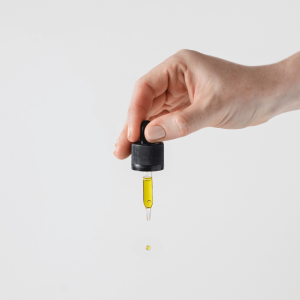
Potential Benefits and Applications
Both CBD tinctures and oils have gained popularity due to their potential health benefits. These products, while similar in many aspects, have distinct differences in composition, taste, dosage precision, and efficacy. Understanding these differences can greatly aid consumers in choosing the product that best matches their needs and lifestyle preferences.
Common Therapeutic Uses of CBD Tinctures:
- Pain Management: CBD tinctures can be used for managing different types of pain, including chronic pain caused by conditions such as arthritis and multiple sclerosis.
- Anxiety and Depression Relief: Many people use CBD tinctures to alleviate symptoms of anxiety and depression, due to its calming effects.
- Sleep Aid: CBD tinctures might help improve sleep patterns in individuals having insomnia or other sleep disorders.
Practical Applications of CBD Oils:
- Skin Care: Due to its anti-inflammatory properties, CBD oil is often used in skincare products to address issues like acne or psoriasis.
- Edibles: CBD oil can be incorporated into cooking or baking, offering an easy and enjoyable way to consume CBD.
- Pet Health: CBD oil is also used in pet products to help manage pain, anxiety, or other health issues in pets.
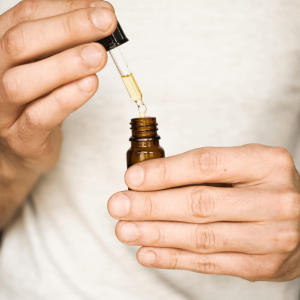
Safety and Quality
When we talk about CBD, we can’t glance over the crucial aspect of safety and quality. So, let’s dive right into the topic!
One of the significant factors to consider while choosing between CBD tinctures and oils is third-party testing and product transparency. Trustworthy CBD companies are like open books – they willingly share lab results and keep their production process transparent.
Now, let’s dip our toes into the world of potential risks, safety, and side effects. While CBD oil and CBD tinctures are generally considered safe, some users may experience potential side effects like drowsiness, dry mouth, or reduced appetite. It’s essential to start with a low dose and increase as needed.
Finally, it’s important to take into consideration that the CBD industry has standards in place. These guidelines ensure the production of high-quality CBD products. Sticking to brands that follow these standards guarantees the best experience possible.
Regulatory Landscape: Laws and Liquids
Legal considerations add another layer to the CBD oil vs. tincture puzzle. Different jurisdictions have differing views on the legality of CBD oil and tinctures, often with a fine (and perplexing) line between what’s okay and what isn’t.
In some places, CBD oils get a green light, while tinctures are told to stop in their tracks. And in other regions, it’s vice versa.
This regulatory variability plays a significant part in shaping market trends and influences consumer choices when choosing between a CBD oil or a CBD tincture. After all, who wants to play tug-of-war with the law while simply trying to improve their wellness routine?
Conclusion
To sum up, CBD oils and tinctures provide unique benefits and uses. However, they differ in composition, taste, dosing, effectiveness, and application.
Tinctures, being alcohol-based, are stronger and faster-acting. They can potentially help with pain, anxiety disorders, and sleep issues. On the other hand, CBD oils have a slower release and are used in skincare, edibles, and pet health.
When choosing between the two, consider your lifestyle, goals, and desired effects. Always go for transparent brands that prioritize safety, quality, and third-party testing. Also, be aware of the legal aspects in your area.
CBD has countless options, so make informed choices that enhance your wellness routine.
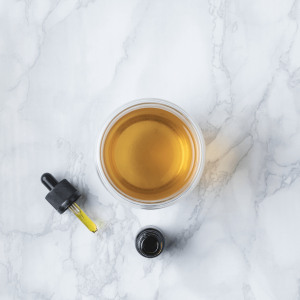
Frequently Asked Questions
1. What is better CBD oil or tincture?
The choice between CBD oil vs tincture really depends on your personal needs and preferences. If you’re looking for quicker relief, you might find CBD tinctures more suitable due to their faster absorption rate.
However, if you want sustained effects, CBD oil may be a better choice. It’s important to remember that individual experiences can vary, so it might take some experimentation to find what works best for you.
2. What are the cons of CBD tincture?
While CBD tinctures can offer quick relief for pain and inflammation treatment and are easy to administer, they do come with some potential drawbacks.
The alcohol base can be unpleasant for some people, and tinctures generally require careful dosing due to their high concentration. Additionally, some people may experience side effects such as dry mouth or drowsiness.
3. How long does it take for CBD tincture oil to kick in?
The onset of effects from CBD oil tinctures can vary based on several factors, including the concentration of CBD, your body’s metabolism, and how you administer it.
Generally, effects can start to be felt within 15 to 45 minutes. For faster absorption, it’s often recommended to administer the CBD oil tincture sublingually, or under the tongue.
4. Why is CBD tincture so expensive?
The cost of a CBD tincture can be attributed to several factors, including the high cost of growing and using the cannabis plant, harvesting quality cannabis, the extraction process, and third-party testing to ensure safety and potency.
It’s important to remember that not all CBD tinctures are created equal, and higher-quality products often come with a higher price tag. However, investing in a quality product can help ensure you’re getting the most benefit from your CBD usage.

 Rewards
Rewards




